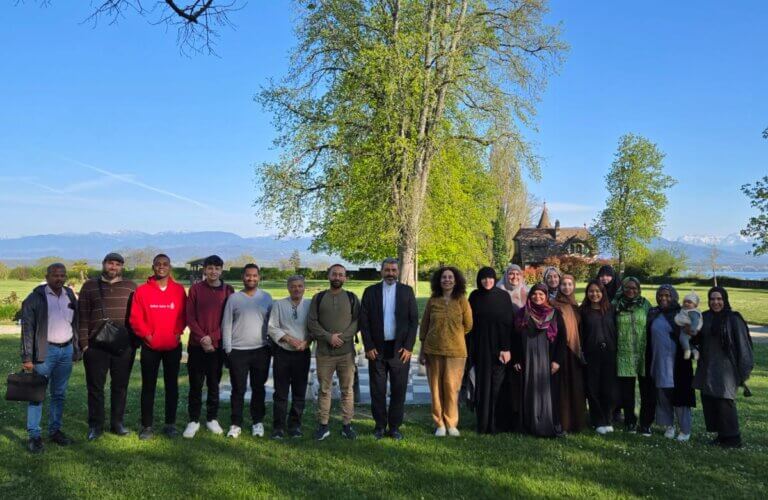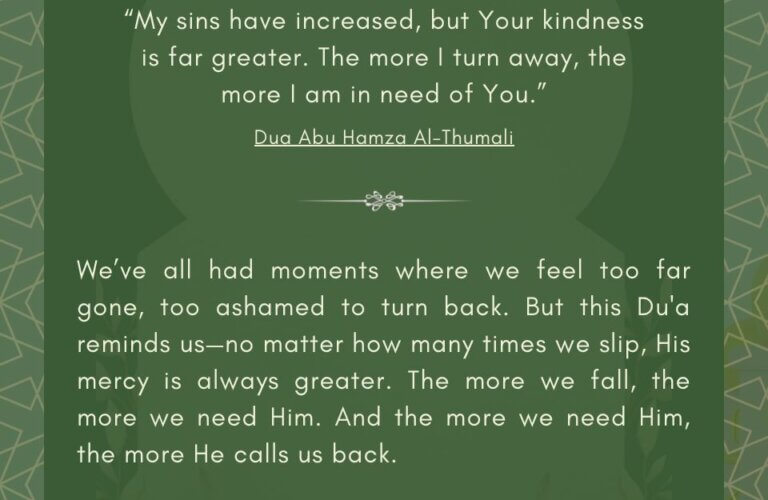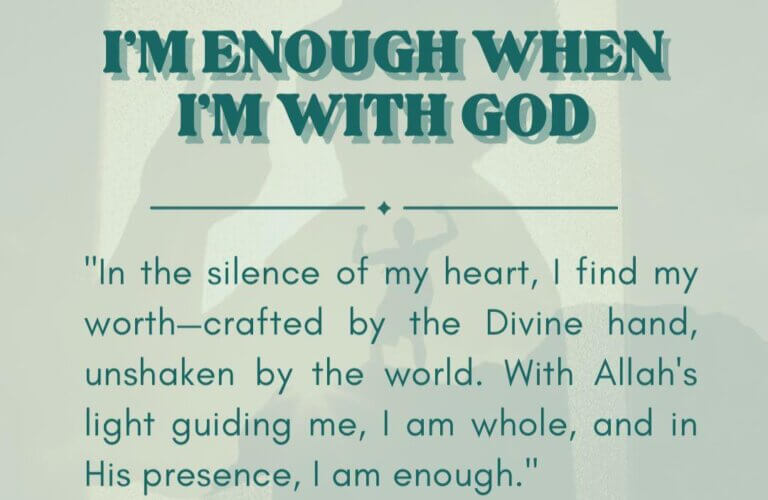Author: Syeda Mehr Mustafa
Sha’ban – the month in which the jalal (splendour) and jamal (beauty) of Muhammad’s household (S.A.W.) descended from the heavens.
When Allah bestowed upon us, one of His greatest mercies – Husayn ibn Ali (A.S.).
When the nur (light) of the Ahlul kissa (family of the cloak) intensified in its radiance to bring forth the unparalleled excellence, chivalry and valour of Abul Fazl Abbas (A.S.), Ali Akbar ibn Husayn (A.S.) and Qasim ibn Hasan (A.S.).
When Allah graced worship with the ornament of worshippers – Zayn al-Abideen (A.S.).
Sha’ban – When the All-Knowing preemptively declared the victory of Karbala, and the glories of its heroes first manifested themselves.
Yet before the heroes of Karbala, Sha’ban bestows upon us, the heroine of Karbala. As though time itself refused to initiate the divine saga with anyone but her.
Sha’ban begins, by answering the prayers of Ali ibn Abi Talib (A.S.). One of Allah’s favourite creations, who rarely asked his Lord for any favours. Yet in his prostrations, the lion of God implores his Creator for the lioness of Karbala.
Zaynab binte Ali (A.S.) is a sign for those who reflect, that Allah bestows beyond our greatest expectations.
Pondering upon any member of the Ahle bait makes one notion clear – nothing about them is simple. They are the most intricate, complex and nuanced creations of Allah. Enshrouded not only in purity but mysterious paradoxes.
To be paradoxical is not the same as being contradictory. Contradictions aim to negate and reduce each other. Whereas paradoxes coexist, aspiring to expand the horizons of meaning, perspective and faith.
And what is more paradoxical than the birth of the mother of misfortunes (umm al masaib)?
The same father who beseeched his Lord for a daughter wept at her birth. While Madina tul Nabi celebrated the nabi’s (S.A.W.) first granddaughter, he wept for her fate. When the last nabi and the first wali, could not separate their celebration and mourning for Zaynab (A.S.), how can we escape such paradoxes?
But sometimes, the aching heart requires simplicity, a moment of wholesome bliss which escapes the clutches of tragedy. But how does one find that which does not exist?
Herein Zaynab (A.S.) answers the question herself. She enlightens us with something far more powerful and everlasting than a few moments – she gifts us perspective. A perspective which does not pit celebrating and mourning Karbala against one another rather encapsulates both. The most beautiful of perspectives – the perspective of beauty itself.
She provided a vantage point of perception which shreds to pieces the veils of worldliness and heedlessness to reach the reality, truth and essence of Al-Husayn’s (A.S.) sacrifice and Tawheed (Divine Unity).
The pompous tyrant Ubaydullah ibn Ziyad was left humiliated and defeated after engaging in a verbal spar with Zaynab (A.S.). Unable to defend himself against the sword of her unmatched knowledge and eloquence in his own court – he resorted to taunts. Hoping to emotionally destabilize her mental proficiency and resolute faith – he asked:
“How do you see that which Allah has done to your brother?”
In that moment, she wielded her words to deliver the defiant and lasting blow whose impact still reverberates today. With the stroke of one simply strung sentence, she simultaneously altered history and enriched the Islamic spiritual imagination for all times to come.
“I saw nothing but beauty. Allah knew they would be killed, therefore they came to the place they would be slain,” she replied serenely.
Looking beyond the massacre and mutilation on the battlefield, she only saw Allah, His will and Al-Husayn’s (A.S.) submission to his Lord. Zaynab (A.S.) applied the mystical Quranic concept of discarding every temporal context to gaze upon the Supreme context of the Reality of Tawheed.
The Quran says in 2:115, “Wheresoever you turn, there is the Face of God” and 28:88, “All things perish, save His Face”. Referring to Allah’s Face is of course a metaphorical allusion to the ever-present and singular reality of The Divine, in front of which all other perspectives, contexts and realities simply perish.
But how did she see Allah and His Beauty? The same way her father did.
Ali (A.S.) was once asked,
“O commander of the faithful! Hast thou seen thy Lord?”
“I would not be worshipping a lord whom I have not seen”, he said.
“But how didst thou see Him?” the man inquired.
To which Ali (A.S.) replied, “Eyes see Him not through sight’s observation, but hearts see Him through the verities of faith (haqa’iq al-iman).”
Those whose hearts are cleansed are able to move beyond varying realities and shifting perspectives, to nothing but the Absolute Reality of Allah who is as Beautiful (Al-Jamal) as He is Powerful (Al-Muqtaddir) and Unique (Al-Ahad).
So how generous is Zaynab (A.S.) who shared her perception of Karbala and Allah? She who compensated for the veils upon our hearts and faith, with pieces of her own heart and faith. Whose vision allows us to not only gaze upon the reality of Al-Husayn (A.S.) and his sacrifice – but the Beautiful Lord, Whom Al-Husayn (A.S.) sacrificed everything for.
Just as she gave the message of Al-Husayn (A.S.) the perspective it needed to survive and prosper for over fourteen hundred years, she has given us the ability to reach within the ever-beating heart of her misfortunes and see nothing but the beauty of her faith and resilience.
If Zaynab (A.S.), could look beyond the carnage and violence at Karbala to see nothing but beauty, can you?
If she could stand in the face of a tyrant and see noone but Allah as her Sovereign, can you?
If she could see beyond her captivity to find her spiritual liberation, can you?
If you look within and beyond her tragedies what beauty do you see?
Can you see the beauty of her strength as the fire that burnt her house did? The dignified grace of her spiritual spine which carried on it the wali of her time – literally and metaphorically. How the flames surrounding her must’ve felt lukewarm in comparison to the burning resolve of her faith and resilience? How they must’ve wished they could rise and spread with the same intensity and fortitude she spread the message of Karbala with? Do you feel the warmth of the spiritual fire Zaynab (A.S.) ignited within the heart of Islam?
Do you see the beauty of her worship as the cold desert nights did? When an ardent lover sat atop a saddleless camel praying tahajjud, embraced in the warmth of her Beloved Creator. How the chains that bound her, could not stop the praises of Allah flowing freely from her? How the air around her nestled in the comfort of her supplications? Can you feel the love with which she remembered Al-Husayn (A.S.) and the heroes of Karbala in those night prayers? Is it not the source of the same love you remember Karbala with? Do you see the beauty of the pieces of your heart and faith Zaynab (A.S.) bestowed upon you?
Is she not the visionary who pierced through the ugliness of your sins, and made parts of you beautiful?
So if you behold Zaynab (A.S.) through the eyes of your heart you will see more than superficial contradictions and the complex paradoxes of tragedy. You will see her as the Prophet (S.A.W.), Ali (A.S.), Al-Husayn (A.S.) and Zayn al-Abideen (A.S.) did – as one of the most beautiful creations of The Most Beautiful God.
Author intro: The author is a Fulbright scholar with a M.A. Islamic Studies from George Washington University. Her research focuses on Al-Sajjad’s life and the Sahifah al-Sajjadiyyah. She can be reached at [email protected].




Amazing work! Every thing is so beautifully described. May you get the ajar for this effort. Keep up the great job
Beautiful article! Worth reading!
Bless you and keep sharing our beautiful mission
This is so eloquently written. Love the comparison of the words of Imam Ali (as) and Bibi Zaynab (as).
wonderfully written! the beauty of Bibi Zainab’s herculean effort after the battle of Karbala is a testament to the immaculate teachings of the Ahle Bayt AS
Alhamdulilah for all the beautiful souls who have embarked on this beautiful journey in seeking the ultimate Light of God through the pristine Ahlulbayt a.s
Salam ya Ahele-bait
God bless the writer.
I am grateful to the author for their insightful exploration of Zaynab S.A life and legacy. This piece is a true reflection of Zaynab bint Ali S.A and her role in Karbala.
God bless you!
What a powerful read!! loved every sentence drenched in overflowing love for Bibi Zainab(sa)’s beautiful personality.
A well-written and informative piece that explores the concept of faith and beauty in the face of suffering. It gives a clear and concise explanation of the story of Zaynab bint Ali and her famous quote, “I saw nothing but beauty.” The article also delves into the deeper meaning of this quote, exploring the concept of divine beauty and how it can be perceived through faith.
Beautifully written, good work!!
AL-Khabeer O Baseer has shed His light towards us and this article is so amazing in its content. One can only thank Almighty and pray for the author to continue to help us in remembrance through her writing. Thanks and keep it up!!